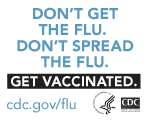Top 10 Cancers Among Men
Men can reduce their risk for some of the most common cancers by avoiding smoking and receiving regular colorectal cancer screening tests starting at age 50.

The 10 most commonly diagnosed cancers among men in the United States* included cancers of the prostate, lung, colon and rectum, and bladder; melanomas of the skin; non-Hodgkin lymphoma; kidney cancer, mouth and throat cancer, leukemias, and pancreatic cancer.
Prostate Cancer
Prostate cancer is by far the most common cancer in men. In the U.S. in 2005,* 185,895 men were diagnosed with prostate cancer, and 28,905 died from the disease. Prostate cancer is more common among African-American men than men of other racial and ethnic groups, but medical experts do not know why. In 2005, 210.5 out of 100,000 African-American men were diagnosed with prostate cancer, compared to 132.8 white men, 116.4 Hispanic† men, 72.7 Asian/Pacific Islander men, and 64.6 American Indian/Alaska Native men.
Since there is not enough medical evidence to decide if the potential benefits of prostate cancer screening outweigh the potential risks, CDC supports informed decision making. Please talk to your doctor about prostate cancer screening.
Lung Cancer
More men die from lung cancer than any other type of cancer. In the U.S.,* 107,416 men were diagnosed with lung cancer, and 90,139 men died from the disease. African-American men also are affected more by lung cancer than men of other races and ethnicities. In 2005, 101.6 out of 100,000 African-American men were diagnosed with lung cancer, compared to 83.9 white men, 49.7 American Indian/Alaska Native men, 49.0 Asian/Pacific Islander men, and 47.6 Hispanic† men.
About 90% of lung cancer deaths in men in the U.S. are due to smoking. The most important thing a man can do to prevent lung cancer is to not start smoking, or to quit if he currently smokes.
Colorectal (Colon) Cancer
Colorectal cancer is the third most common cancer in men. It affects both men and women of all racial and ethnic groups, and is most often found in people aged 50 years or older. In 2005,* 64.9 out of 100,000 African-American men were diagnosed with prostate cancer, compared to 55.4 white men, 46.8 Hispanic† men, 40.6 Asian/Pacific Islander men, and 34.3 American Indian/Alaska Native men.
Deaths from colorectal cancer could be cut by at least half if all people aged 50 years or older received regular screening tests. Speak with your doctor about colorectal cancer screening.
Data source: U.S. Cancer Statistics Working Group. United States Cancer Statistics: 1999–2005 Incidence and Mortality Web-based Report. Atlanta (GA): Department of Health and Human Services, Centers for Disease Control and Prevention, and National Cancer Institute; 2009. Available at: http://www.cdc.gov/uscs.
‡ Rates are age-adjusted to the 2000 U.S. standard population (19 age groups – Census P25–1130).
*2005 is the most recent year for which statistics are available.
†Hispanic origin is not mutually exclusive from other categories.
More Information
- Prostate Cancer
- Lung Cancer
- Colorectal Cancer
- Skin Cancer
- Hematologic (Blood) Cancers
- Kick the Habit (
 3:56)
3:56) - Don’t Pass on This Test (
 4:29)
4:29) - Send a Health-e-Card about Cancer Prevention:





